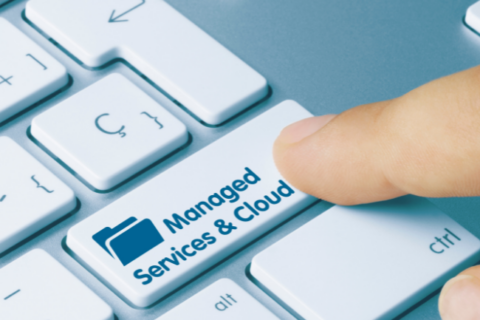Why You Need an MSP for Software
 Software is an integral part of modern businesses, enabling them to automate processes, improve productivity, and stay competitive. However, software is not infallible, and vulnerabilities can be exploited by hackers or other cybercriminals. To mitigate these risks, software needs to be patched, updated, and maintained regularly. This is where a Managed Service Provider (MSP) can be a tremendous resource for the business owner, C-suite, and even free up internal IT staff. Let’s explore why you need an MSP for software further.
Software is an integral part of modern businesses, enabling them to automate processes, improve productivity, and stay competitive. However, software is not infallible, and vulnerabilities can be exploited by hackers or other cybercriminals. To mitigate these risks, software needs to be patched, updated, and maintained regularly. This is where a Managed Service Provider (MSP) can be a tremendous resource for the business owner, C-suite, and even free up internal IT staff. Let’s explore why you need an MSP for software further.
Software Maintenance
Software needs to constantly be patched, updated, and maintained to prevent malware, viruses, and provide endpoint security. Patching, updating, and maintaining software is critical for several reasons:
- Security: Software vulnerabilities can be exploited by hackers, leading to data breaches, malware infections, and other security risks. Patching and updating software is necessary to address these vulnerabilities and protect against cyber threats.
- Performance: Over time, software can become slow, unresponsive, or incompatible with other systems. Updating and maintaining software ensures that it runs smoothly, performs well, and integrates seamlessly with other systems.
- Compatibility: As technology evolves, software may become incompatible with new hardware, operating systems, or other software. Updating and maintaining software ensures that it remains compatible with other systems and can be used effectively over the long term.
How an MSP Can Help With Software
An MSP can play a critical role in ensuring that software is patched, updated, and maintained effectively. Here are some ways that an MSP can help:
- Proactive Maintenance: An MSP can monitor software systems and proactively address any issues and threats. This can help to prevent downtime, minimize disruptions, and ensure that software systems are always running smoothly.
- Regular Updates and Patches: An MSP can ensure that software systems are up to date with the latest security patches, updates, and bug fixes. This can help to mitigate security risks, improve performance, and ensure compatibility with other systems.
- Expertise: An MSP has expertise in managing software systems and can provide guidance and recommendations on best practices, security protocols, and other important considerations. This can help businesses to make informed decisions and minimize risks.
- Scalability: As businesses grow and expand, software systems may need to be scaled up or down to accommodate changing needs. An MSP can help to ensure that software systems are flexible, scalable, and able to adapt to changing business requirements.
The Benefits of an MSP
In addition to the benefits outlined above, partnering with an MSP for software maintenance can also provide businesses with the following advantages:
- Cost Savings: Outsourcing software maintenance to an MSP can be more cost-effective than utilizing or tasking an in-house IT team. MSPs can provide specialized expertise and services at a lower cost than hiring a full-time team, which can help businesses save money on salaries, benefits, and training.
- Improved Uptime: Downtime can be costly for businesses, leading to lost productivity, revenue, and customer trust. An MSP can help to minimize downtime by providing proactive maintenance, monitoring, and support, ensuring that software systems are always up and running.
- Access to Advanced Tools and Technologies: MSPs often have access to advanced tools and technologies that can help to optimize software systems and improve performance. This can include monitoring tools, automation software, and cloud-based solutions that can help businesses implement the latest innovations and maintain their competitive advantage.
- Compliance and Regulatory Expertise: Many industries are subject to compliance and regulatory requirements that must be met to avoid penalties or legal issues. MSPs can help businesses to stay compliant by providing expertise on industry regulations and ensuring that software systems are properly configured and secured.
- Customized Solutions: MSPs can provide customized solutions that are designed for specific business needs. This can include customized maintenance plans, support services, and software solutions that are designed to meet the unique needs of each client.
Partnering with an MSP for software maintenance can provide businesses with a wide array of benefits, including cost savings, improved uptime, access to advanced tools and technologies, compliance and regulatory expertise, and customized solutions. By outsourcing software maintenance to an MSP, businesses can ensure that their software systems are always up to date, secure, and performing at their best, enabling the business leaders and IT team to focus on their core business activities.
In conclusion, software systems must be patched, updated, and maintained regularly to ensure security, performance, and compatibility. An MSP can help businesses to manage these processes effectively, providing proactive maintenance, regular updates and patches, expertise, and scalability. By partnering with an MSP, like Conscious Networks, businesses can ensure that their software systems are running smoothly and securely, enabling them to focus on their core business activities and increasing efficiency, security, and profitability. Schedule a consultation today!



